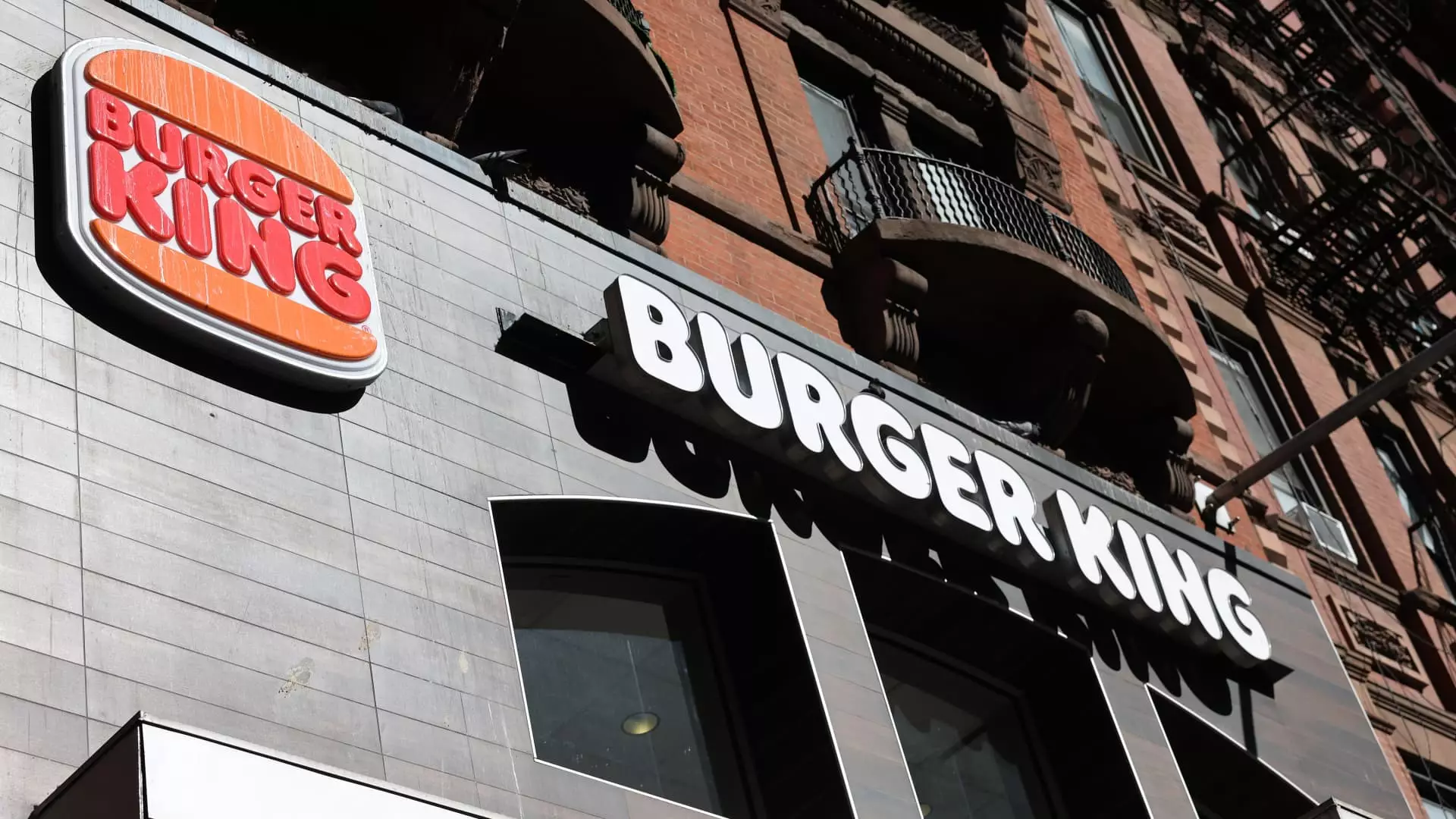Restaurant Brands International, the parent company of beloved chains like Popeyes, Burger King, and Tim Hortons, recently unveiled quarterly earnings that were an unwelcome surprise for investors. Analysts expected a robust financial report to mark the transition into a new fiscal year, but instead, they were met with dismal figures that reflect a broader malaise affecting the fast-food industry. The company reported adjusted earnings per share of 75 cents, falling short of the anticipated 78 cents, alongside revenues that lagged behind expectations by nearly $20 million. This oversight could be interpreted as a harbinger of tougher times ahead, as their misjudgment seems to underscore a rising tide of consumer wariness.
Underperforming Brands and Shrinking Market Share
The undercurrents of the fast-food market have shifted significantly, as exemplified by the startling decline in same-store sales across Restaurant Brands’ three most significant outlets. While the company reported an overall same-store sales increase of just 0.1%, it was hardly a cause for celebration amid the downturn suffered by its flagship brands. Tim Hortons saw sales fall by 0.1%, a far cry from the projected growth of 1.4%, and Burger King faced even steeper challenges with a 1.3% dip in same-store sales, substantially worse than the anticipated decline. Not to mention the staggering 4% drop at Popeyes, which adds a layer of concern for a chain that has generally enjoyed popularity. It seems that the once-reliable fast-food business model is beginning to crack under pressure from changing consumer preferences and heightened competition.
Societal Shifts Impacting Consumer Behavior
The challenges faced by Restaurant Brands are symptomatic of a larger trend affecting consumers at large. As economic conditions tighten and the average consumer grows more discerning, fast-food chains must adapt or risk obsolescence. The latest industry figures indicate that consumers are opting to dine at home and are becoming increasingly health-conscious in a world bombarded by food scandals and sustainability debates.
Moreover, a critical analysis of the chains under Restaurant Brands reveals a common theme: they are failing to innovate at a pace that resonates with an increasingly sophisticated palate. Brands like Tim Hortons, which once reigned supreme in the Canadian coffee scene, now have to contend with vibrant local roasteries and an increase in specialty beverage options. Likewise, Burger King’s efforts to claw back market share have stumbled, revealing a stagnant menu that lacks the creativity needed to attract younger diners.
Stock Reactions and Future Implications
The 2% drop in stock price during premarket trading is not merely a reflection of a disappointing quarter; it’s a sobering indication of investor sentiment that things may not improve soon. Wall Street’s leniency has been tested, and as results continue to come in below expectations, scrutiny will only intensify. Investors may begin to question if management is equipped to turn the tide. In a market where agility and responsiveness are more crucial than ever, the question looms large: can Restaurant Brands bounce back, or are they staring into a mirror of impending decline?
In summation, the troubling financial report from Restaurant Brands is, unfortunately, a mirror reflecting broader societal shifts and an industry in flux. Their inability to emerge from this storm unscathed raises vital questions about their adaptability and long-term strategy moving forward.

